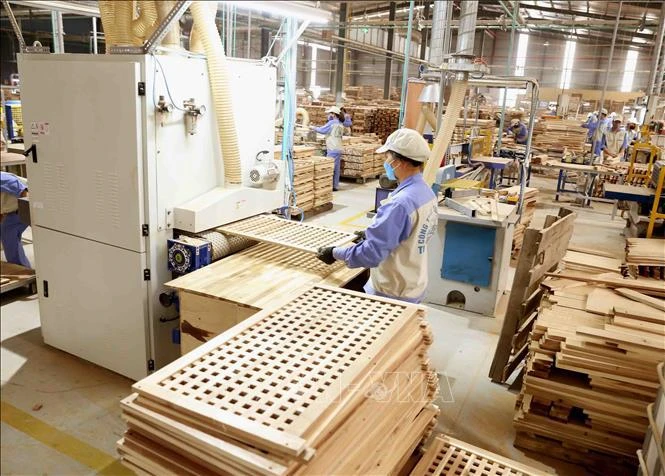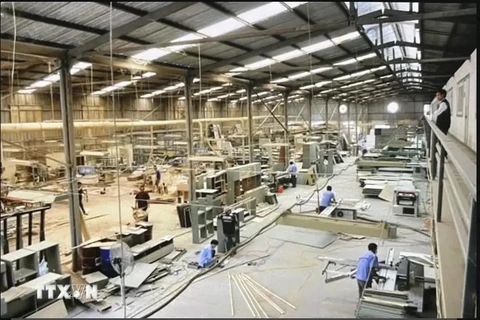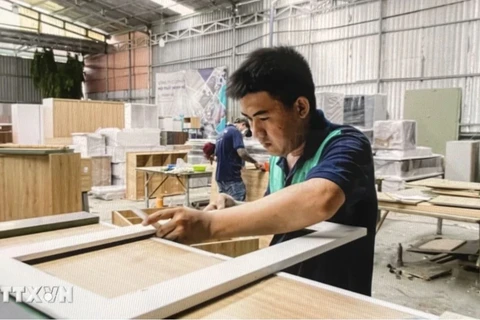
HCM City (VNA) – The final months of the year are when consumers typically renovate and redecorate their homes in preparation for the New Year, providing a significant boost in export orders for the wood industry.
According to Trieu Van Luc, Deputy Director of the Forestry Department under the Ministry of Agriculture and Rural Development, the ministry aims to reel in 14.2 billion USD from wood and woodwork exports this year, an annual increase of 6%, with 67% of the target fulfilled thus far.
Experts in the wood industry noted that major export markets have shown positive growth compared to the same period last year. The US, Vietnam's largest importer of wood and wooden products, saw a 25.9% rise in export value, reaching over 5.5 billion USD in the first eight months. It was followed by China and Japan with 1.2 billion USD and 961 million USD, up by 39% and 1.4% year-on-year, respectively.
The wood sector is witnessing promising export signals, driven by advantages such as a highly skilled workforce, abundant wood material supplies, and the ability to produce traceable and legally sourced wood products.
However, Do Xuan Lap, Chairman of the Vietnam Timber and Forest Products Association (VIFORES), highlighted ongoing economic difficulties and product protectionism faced in key export markets such as Europe, the US, Japan, and the Republic of Korea. Rising sea freight fees have pushed up the cost of raw wood materials, with some types seeing a 40% increase compared to last year.
Additionally, the US has yet to recognise Vietnam as a market economy, meaning that Vietnamese exporters still face discrimination in the country’s anti-dumping and countervailing duty investigations. The actual production costs of Vietnamese firms are not accepted, and instead, “surrogate values” from a third country are used to calculate dumping margins.
To capitalise on market opportunities and advantages in the remaining months, the wood industry should enhance its competitiveness based on five pillars, namely technical solutions and production technology, emission reduction, digital transformation, market development, and the establishment of internal monitoring standards within enterprises, Lap recommended./.






















